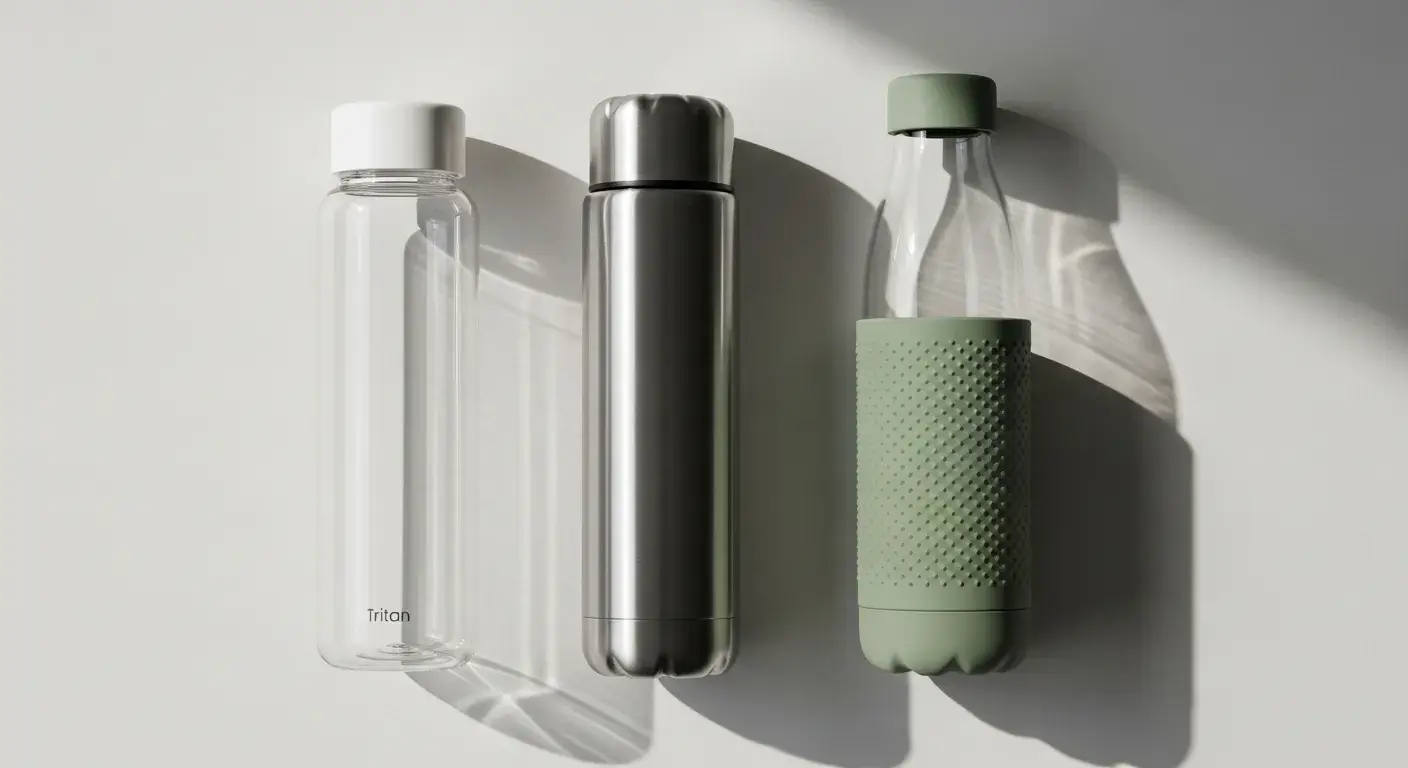
BPA in water bottles raises serious health concerns. Many consumers still don't know how to identify truly BPA-free bottles or what risks remain.
Most water bottles made from plastic may contain BPA or similar chemicals. BPA-free bottles reduce health risks, but some substitutes may also be harmful.
Choosing a water bottle affects more than hydration. Learn what BPA really is, how to avoid it, and what makes a bottle truly safe.
What is BPA and why is it a concern for water bottles?
BPA is a chemical used in plastics. It can leach into water and mimic hormones, affecting health in harmful ways.
BPA can disrupt hormones, raise blood pressure, and harm brain development1 in children. It's found in many plastics and resins.
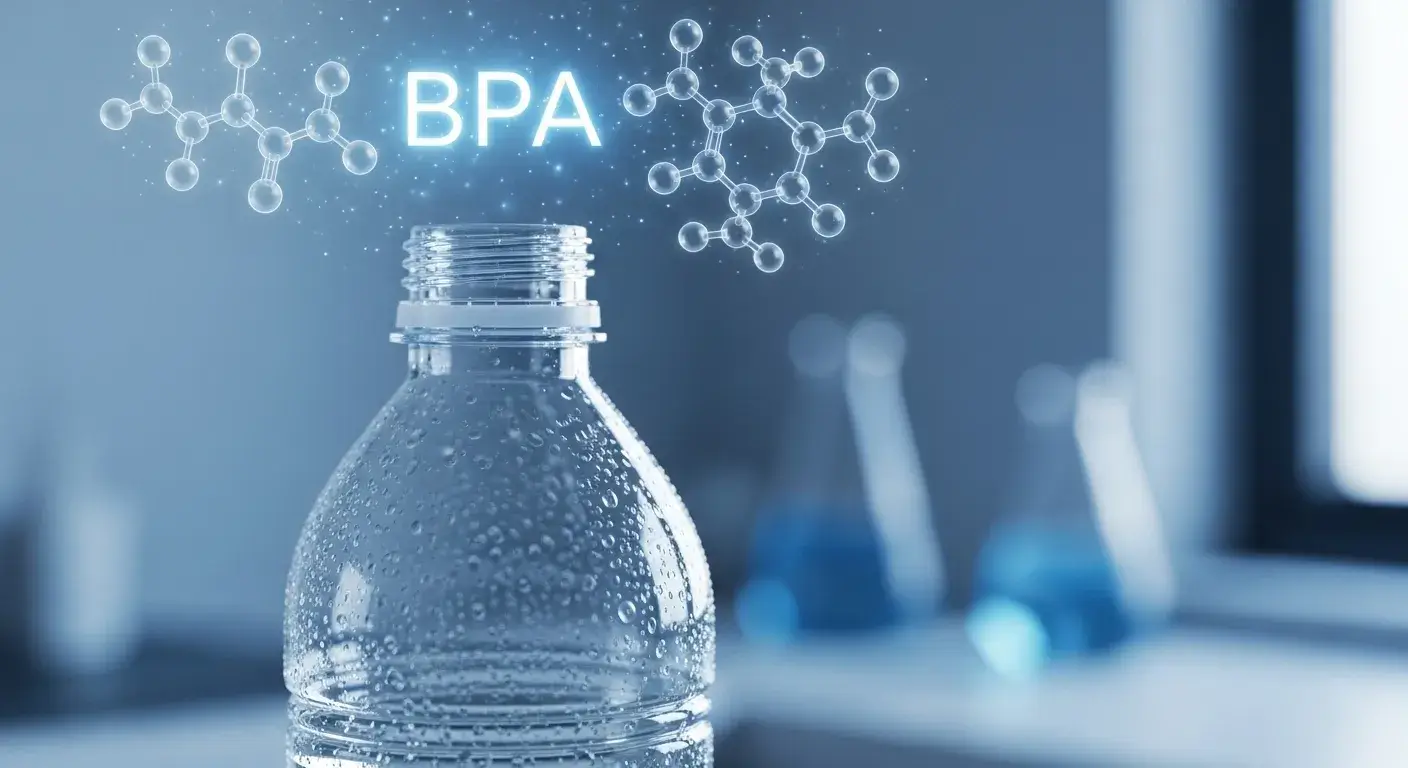
Health Risks of BPA
- Hormonal imbalance
- Increased blood pressure
- Type 2 diabetes
- Risk of cancer
- Developmental delays in infants and children
Global Response
| Region | BPA Regulation |
|---|---|
| USA | Banned in baby bottles |
| EU | Banned in food contact materials for infants |
| Canada | Declared BPA toxic |
Are all plastic water bottles made with BPA?
Not all plastic bottles contain BPA. However, older bottles or those made with polycarbonate plastics often do.
Plastic bottles made from polycarbonate may contain BPA. Newer bottles often use safer materials like Tritan or polypropylene2.
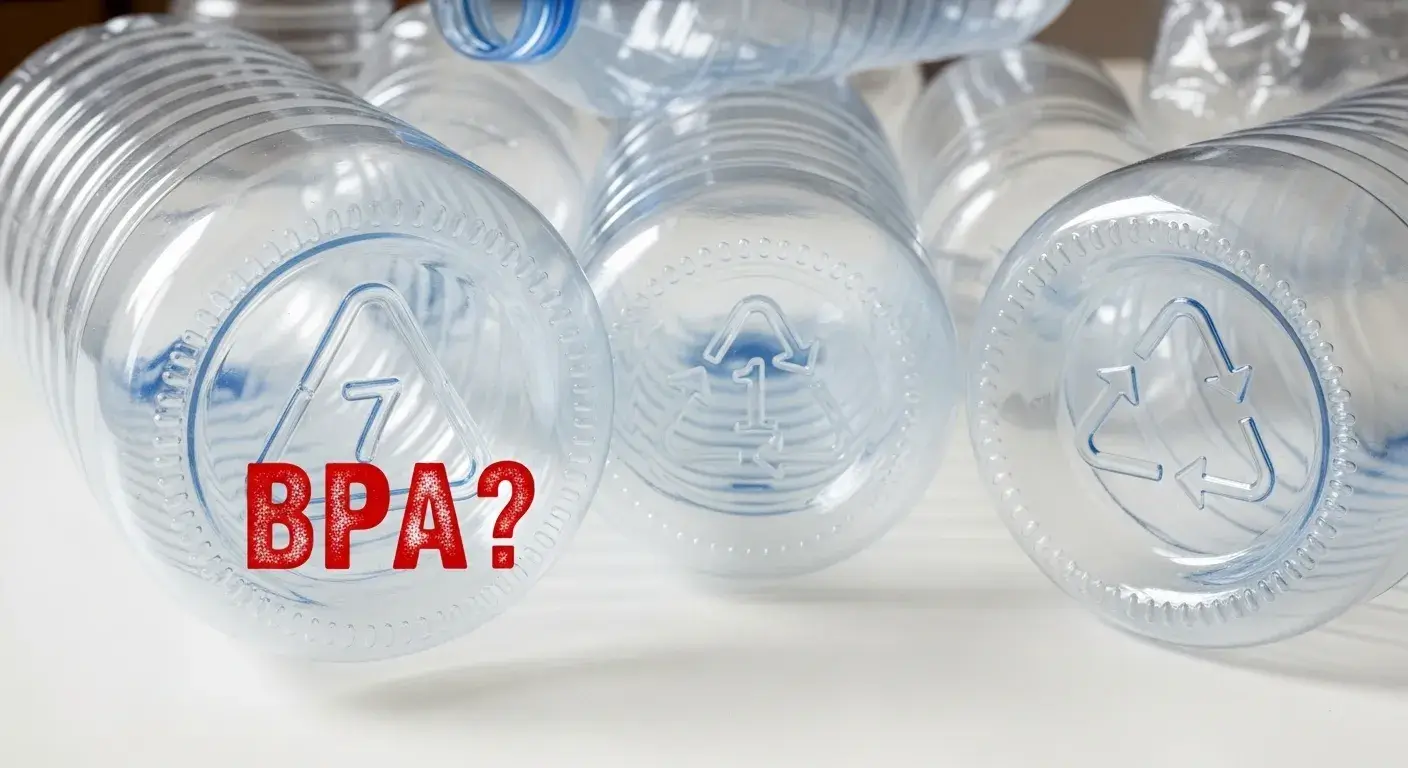
How to Identify BPA Plastics
- Look for recycling code #7: often indicates BPA
- No "BPA-Free" label? Be cautious
- Smell or taste of plastic? Might indicate chemical leaching
What does it mean when a water bottle is labeled BPA free?
The label means the product does not use bisphenol A in its materials. But it may still include similar chemicals.
BPA-free means the product lacks bisphenol A3, but substitutes like BPS or BPF may have similar effects.
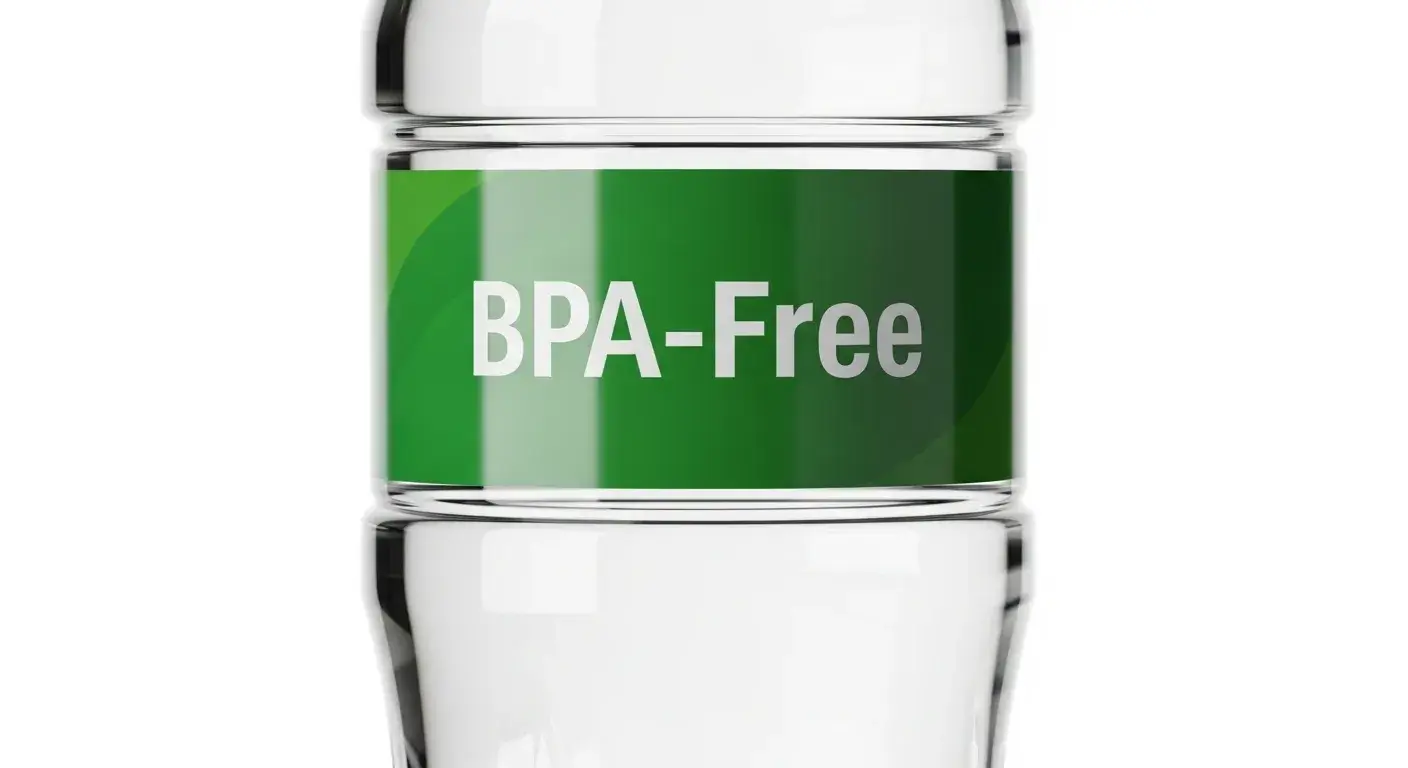
BPA-Free ≠ Chemical-Free
- BPA alternatives like BPS and BPF can disrupt hormones
- Lack of regulation means "BPA-Free" labels are not always fully tested
- Choose reputable brands with third-party testing
Are BPA-free water bottles completely safe?
Not always. Some BPA substitutes are just as risky. Stainless steel and glass are better options.
Some BPA-free bottles contain other bisphenols that may pose health risks. Stainless steel and glass are generally safer4.
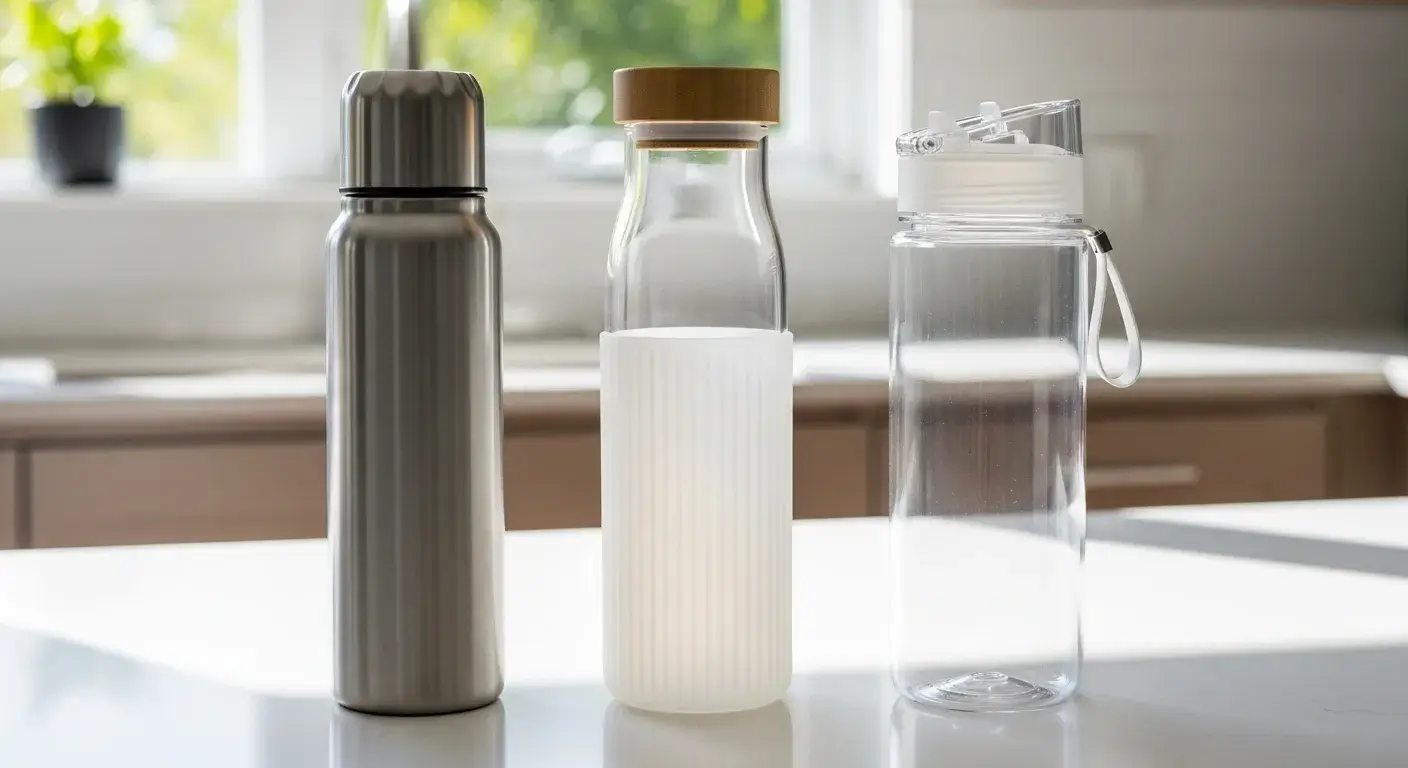
Safer Materials to Choose
- Tritan™ copolyester (plastic alternative)
- Stainless steel (unlined)
- Borosilicate glass
What are the health risks associated with BPA exposure?
Long-term exposure to BPA has been linked to many chronic health problems.
BPA has been linked to hormone imbalance, fertility issues, cancer risk, and behavioral problems5 in children.
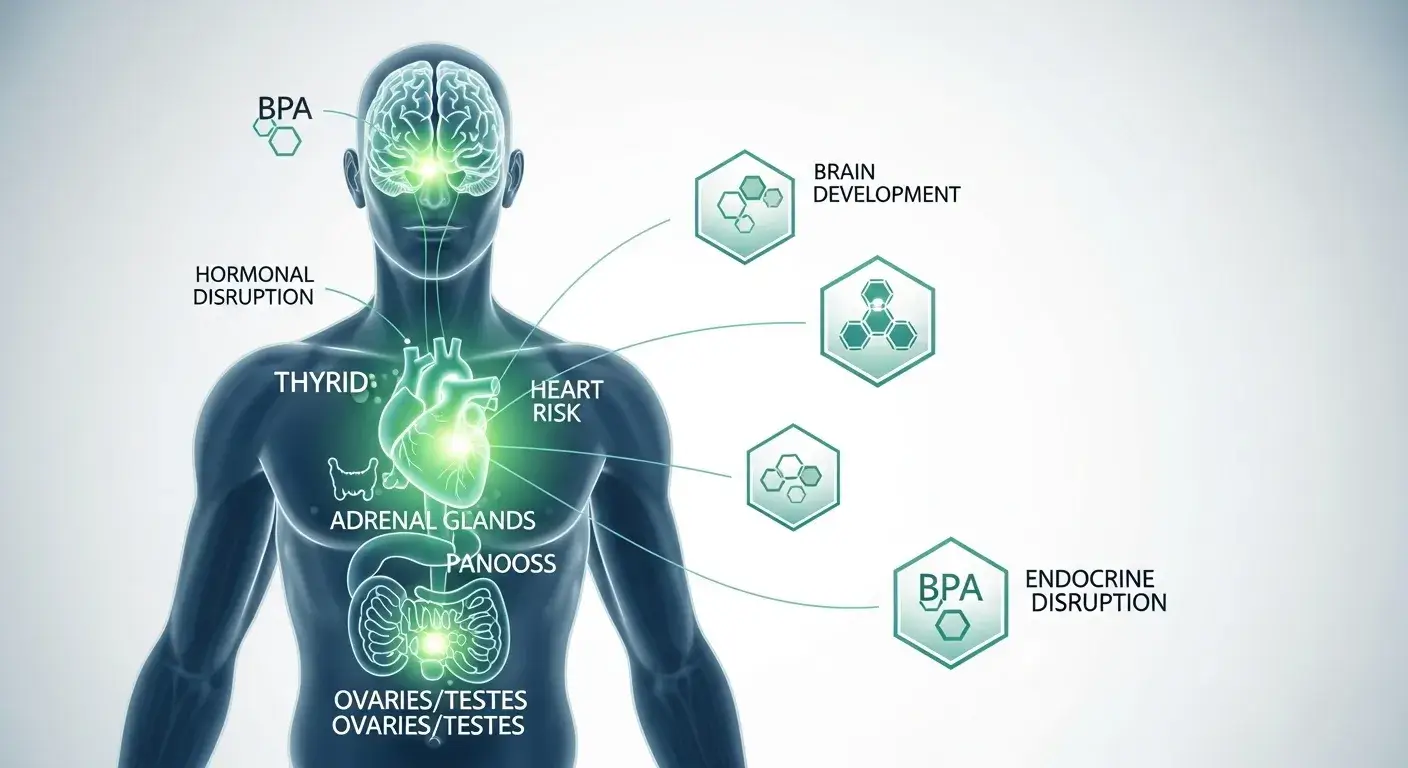
Key Studies
“Low-dose exposure to BPA may lead to increased risk of cardiovascular diseases and insulin resistance.” — NIH
Sensitive Groups
- Pregnant women
- Infants and children
- People with hormonal disorders
How can consumers identify truly BPA-free water bottles?
Look for full product labeling, third-party testing, and avoid ambiguous plastics.
Check labels for 'BPA-Free,' FDA or EU certification6, and avoid plastics marked with recycle code #7 unless clearly labeled safe.
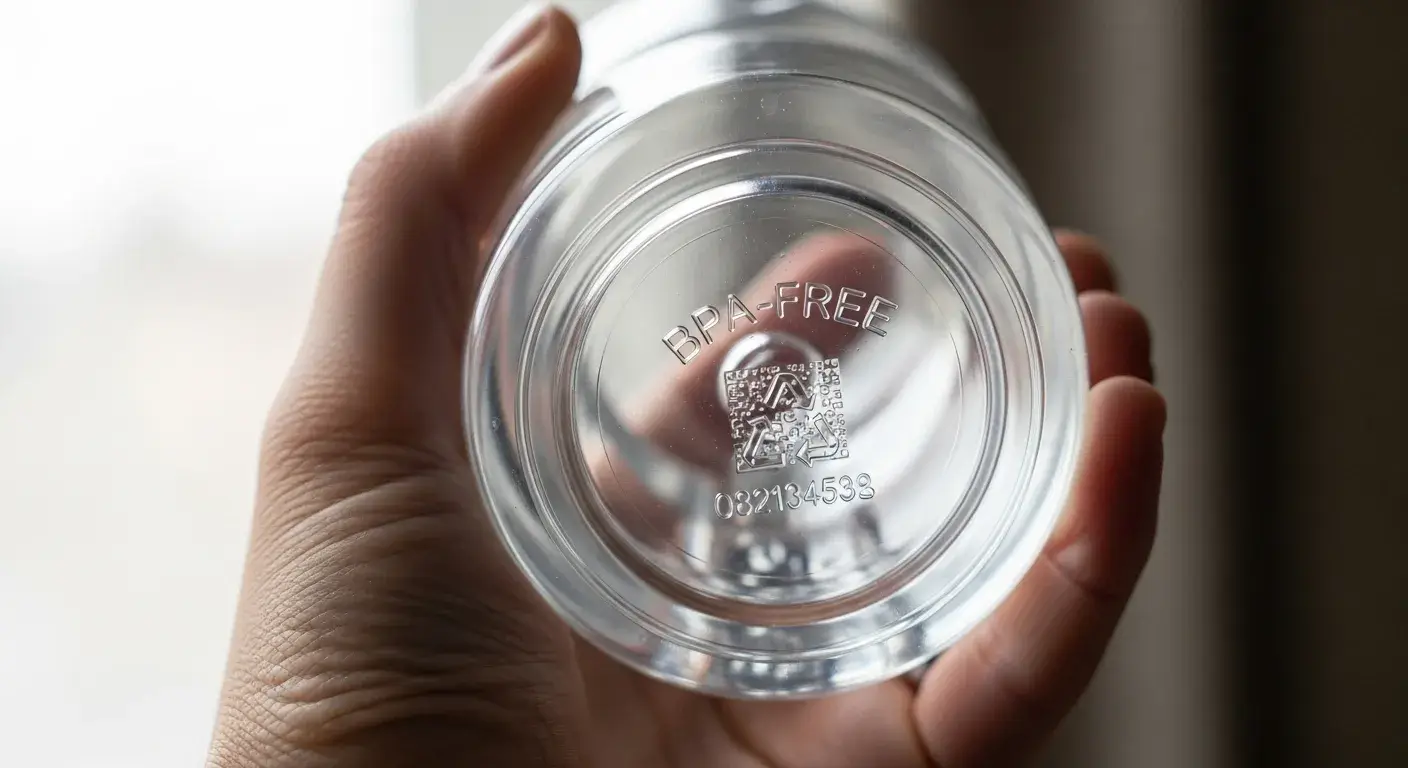
Buyer’s Checklist
- BPA-Free label on bottle and lid
- FDA compliant or EU food-safe certification
- Known material (e.g., Tritan, stainless steel)
What materials are commonly used for BPA-free water bottles?
Safe options include food-grade stainless steel, glass, and BPA-free plastics like Tritan or polypropylene.
BPA-free bottles are made from materials like Tritan, glass, stainless steel, and certified polypropylene7.
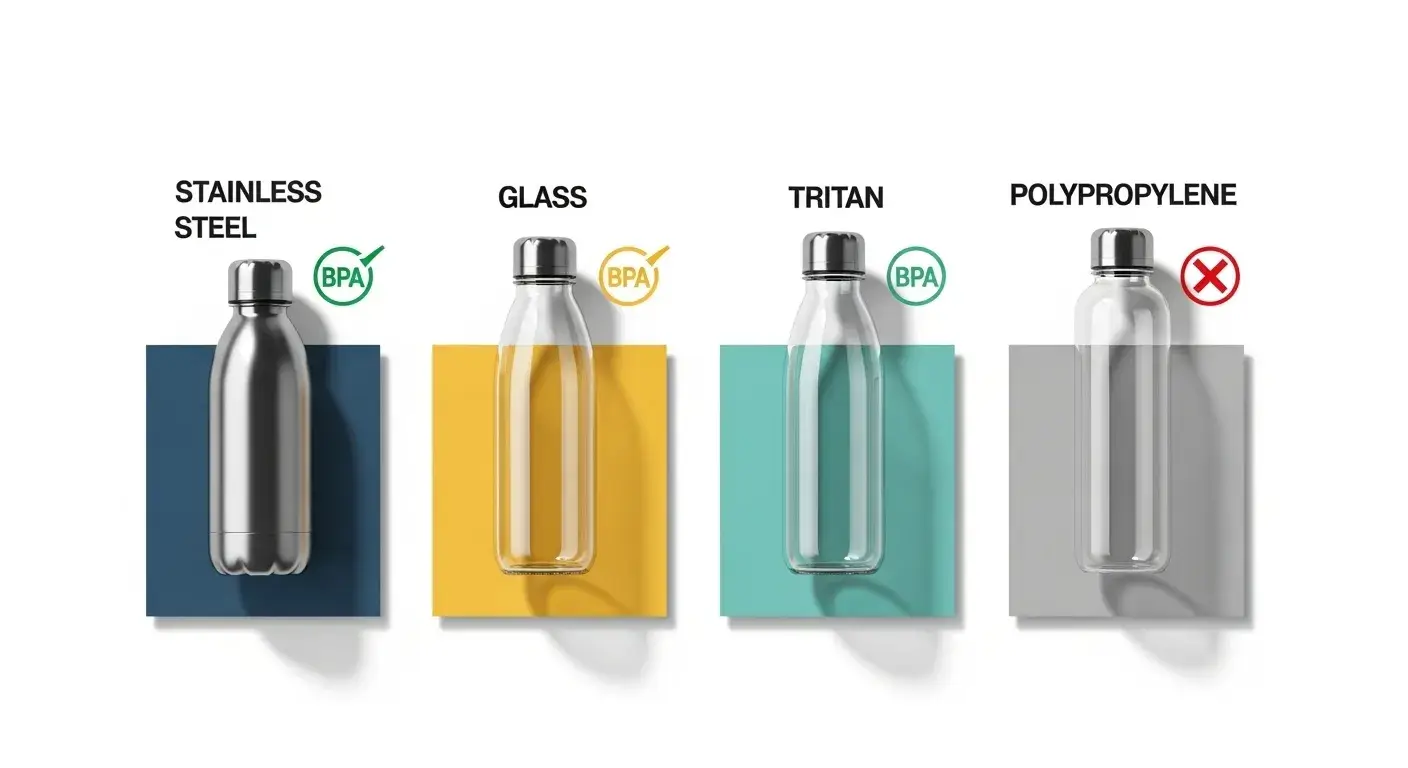
Comparison Table
| Material | BPA-Free | Safe When Heated | Durability |
|---|---|---|---|
| Stainless Steel | ✅ | ✅ | High |
| Glass | ✅ | ✅ | Moderate |
| Tritan Plastic | ✅ | ✅ | High |
| Polycarbonate | ❌ | ❌ | Moderate |
Should children and pregnant women avoid BPA-containing water bottles?
Yes. These groups are more vulnerable to BPA’s effects, even in small amounts.
Children and pregnant women should avoid BPA-containing bottles8 due to higher sensitivity to hormonal changes.
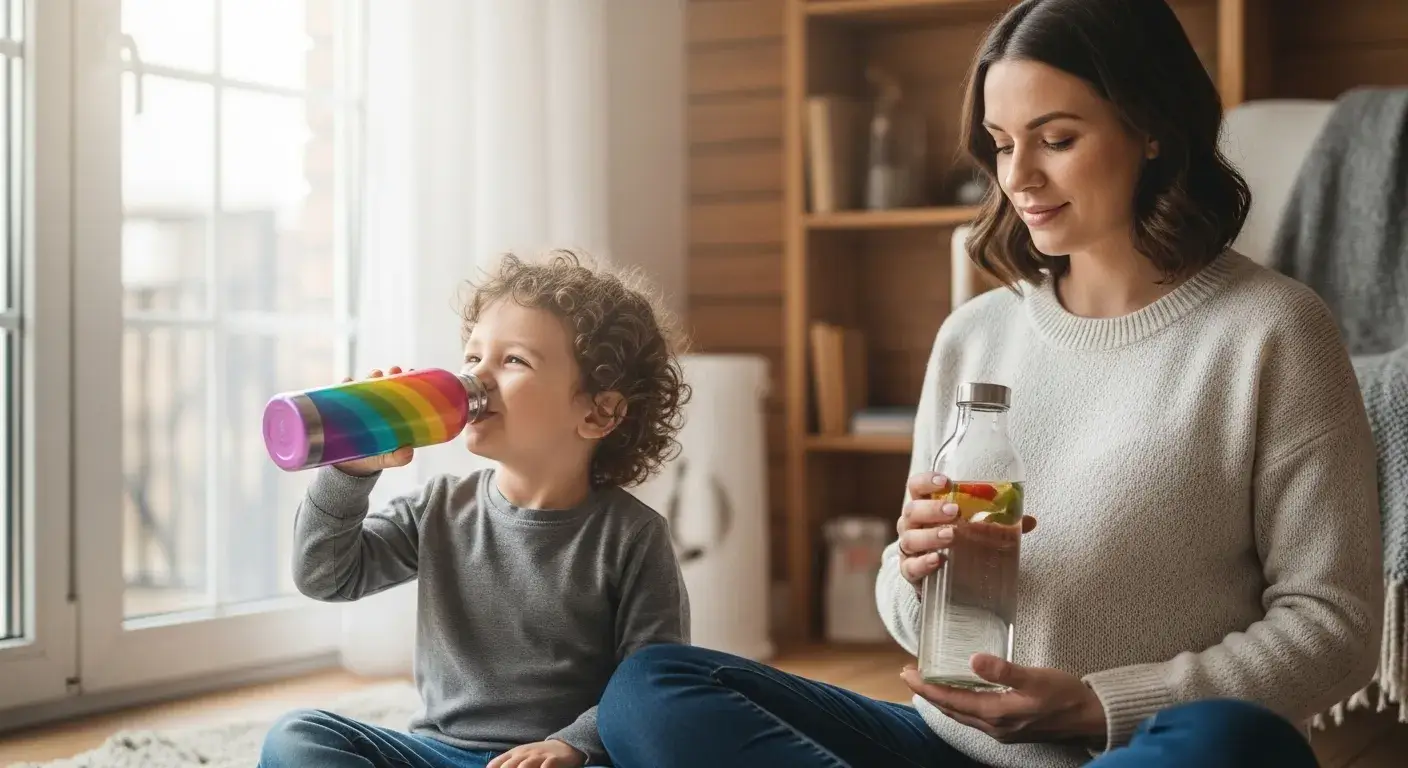
Expert Advice
- Choose bottles certified for baby use or maternity safety
- Use stainless steel or glass for high-heat beverages
- Never reuse old plastic bottles
What are the best practices for choosing and using BPA-free water bottles?
Choose known-safe materials, verify labels, and care properly for bottles.
Use stainless steel or glass9, verify BPA-free labels, and avoid microwaving or heating plastic bottles.
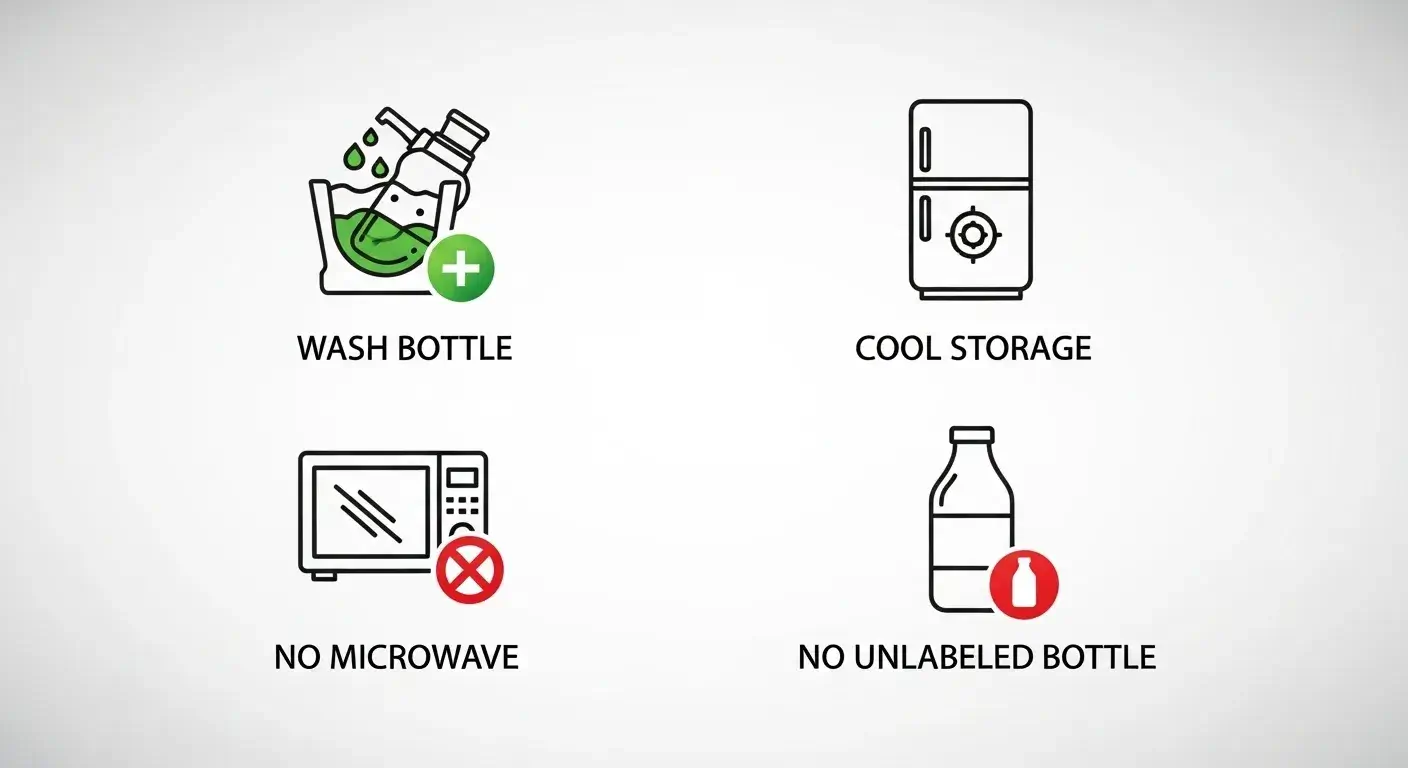
Do's and Don'ts
- ✅ Do wash regularly
- ✅ Do store in cool places
- ❌ Don’t microwave plastic bottles
- ❌ Don’t buy unlabeled plastic
Conclusion
BPA-free bottles help reduce hormone-disrupting chemical exposure. Choose tested materials like stainless steel or Tritan.
FAQs
Is Tritan plastic truly BPA free?
Yes. Tritan is a copolyester made without BPA, BPS, or BPF, and is FDA-approved.
Does stainless steel ever contain BPA?
No. Metal itself does not contain BPA, but check for plastic parts in caps or lids.
Are BPA-free bottles microwave safe?
Not always. Some BPA-free plastics may still degrade under heat. Always check the label.
Are glass bottles a good option?
Yes. Glass is inert, BPA-free, and safe for hot or cold drinks. Use protective sleeves for drops.
Footnotes:
-
Learn how BPA interferes with hormonal balance and child development ↩
-
Overview of safer plastic alternatives to polycarbonate ↩
-
Explains what “BPA-free” really means and its limitations ↩
-
Comparison of BPA-free materials based on health safety ↩
-
Summarizes health studies linking BPA to long-term risks ↩
-
How to identify bottles with safety certifications ↩
-
Comparison of common BPA-free materials used in water bottles ↩
-
Outlines the importance of BPA-free options for vulnerable groups ↩
-
Trusted materials that avoid all bisphenol exposure ↩

